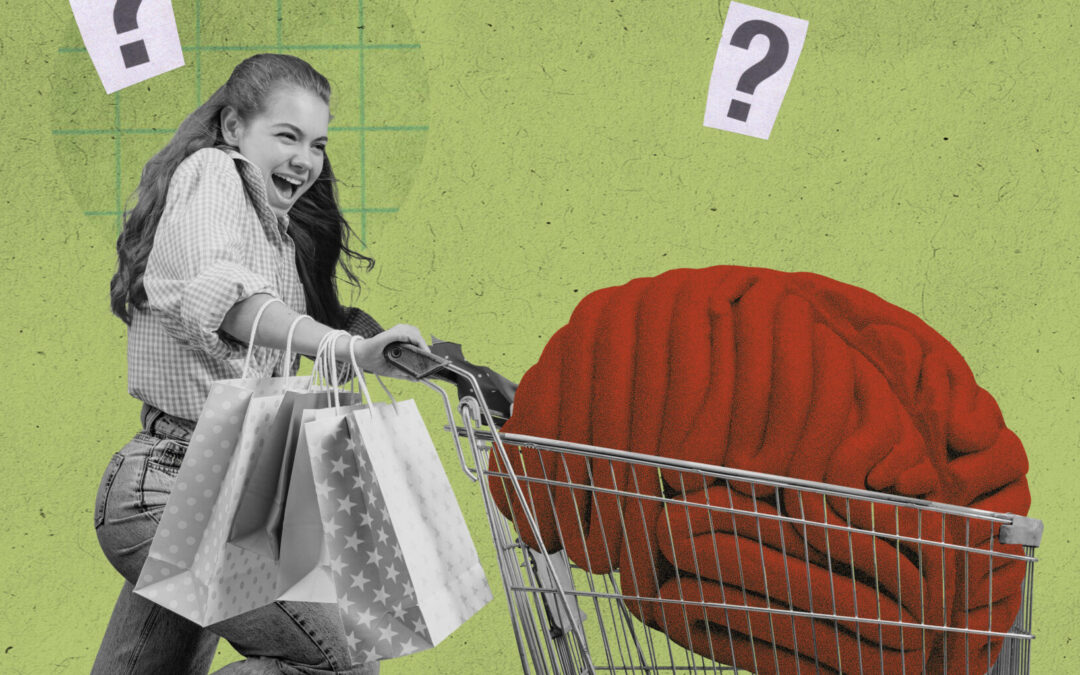That little red notification flashing “Only 3 left in stock!” isn’t just informing you. It’s rewiring how your brain makes decisions. Every countdown timer, every “12 people are viewing this item” alert, every flash sale pop-up has been carefully engineered to exploit a specific quirk in human neuroscience. And it’s working better than you think.
Black Friday isn’t just a shopping event; it’s a psychological experiment being run on millions of people simultaneously. Understanding what’s happening inside your skull when those alerts start firing can help you stay in control when retailers are doing everything possible to make you lose it.
The Brain’s Shortcut Problem
Here’s what happens in your brain when you’re deciding whether to buy something under normal circumstances: you gather evidence. You compare prices, read reviews, check features, consider whether you actually need it. Your brain weighs bits of information for and against each choice until you feel confident enough to decide.
Time pressure changes everything. When retailers add countdown timers and scarcity alerts, your brain doesn’t magically speed up its evidence-gathering process. Instead, it lowers the bar for how much information it needs before making a decision.
Psychologists call this the “speed-accuracy trade-off,” and it’s been studied in labs for decades. Under time pressure, your brain essentially says “we don’t have time for all that evidence gathering… let’s decide with what we have.” You end up making faster decisions with less information, which means you’re far more likely to make mistakes.
When “Only 3 Left” Becomes Gospel Truth

Scarcity cues do something even more insidious than just rushing you. They actually change how your brain values an item.
When you see “low stock” warnings, your brain assigns the product more value simply because it appears scarce. This isn’t a conscious choice; it’s happening in the parts of your brain that process reward and emotion. The item must be good if other people want it too, right? That’s what your brain tells you, even when you have zero evidence about those “other people” or whether the scarcity is even real.
Here’s where it gets interesting: scarcity alerts also discourage you from seeking more information. If a product might sell out while you’re busy comparing prices or reading reviews, taking that extra time feels risky. Your brain would rather secure the “opportunity” than make an informed decision.
The Dopamine Trick You’re Falling For
Dopamine gets blamed for a lot of shopping behavior, but the real story is more nuanced than “shopping makes you feel good.” The neurotransmitter doesn’t actually surge when you receive a reward. It surges when you anticipate one.
Sales trigger particularly strong dopamine responses because of their element of surprise. Your brain is constantly comparing what you expect with what you actually perceive; when an unexpected benefit enters the picture (30% off! Today only!), the dopamine really spikes. Columbia University neuroscientists found that these unexpected rewards create a much harder “kick” than predictable ones.
This is why flash sales feel so much more compelling than regular pricing. Your brain isn’t processing the actual value of the deal. It’s getting flooded with dopamine from the surprise element, which encourages exploration and risk-taking… exactly what retailers want.
Your Shopping Cart Is Lying To You

Ever notice how hard it is to remove items from your online cart once they’re sitting there? That’s the endowment effect at work, and it’s one of the most powerful psychological forces in shopping.
Once you add something to your cart, your brain starts treating it like it already belongs to you. Psychologists have documented this extensively; we value things more highly once we feel ownership, even if that ownership is completely imaginary. That digital piano in your Amazon cart? Your brain has already imagined you playing it, visualized where it will go in your living room, and emotionally attached to the purchase.
Retailers know this, which is why they send “you left items in your cart!” emails and use persistent cart features. They’re betting that the longer something sits in your cart, the harder it becomes to let go.
The Shortcuts Your Brain Takes Under Pressure
When you’re rushing to make a decision before a deal expires, your brain looks for mental shortcuts. These shortcuts aren’t based on the information that actually matters.
Instead of evaluating warranty details, long-term value, or whether you genuinely need the item, your brain latches onto easier signals: How many people are viewing it? How much time is left? What’s the discount percentage? These feel like useful data points, but they’re often the least important factors in whether a purchase makes sense.
Research on decision-making under time constraints shows that people consistently rely on social proof (other shoppers’ behavior) and artificial urgency cues instead of substantive product information. Your brain is essentially choosing speed over accuracy, and retailers have designed the entire experience around exploiting that trade-off.
What Actually Helps (When You’re Ready)

Neuroscientists and psychologists who study consumer behavior suggest some practical strategies, though admittedly they’re hard to implement when your dopamine is spiking and countdown timers are ticking.
Planning before the pressure hits is the most effective approach. Research what you actually need before Black Friday starts, and write it down. When your brain has to make split-second decisions, having a predetermined list helps counteract the urgency effect.
Setting a visible budget and pausing before each purchase both work by giving your prefrontal cortex (the rational, planning part of your brain) time to catch up with your reward system. Even a one-minute pause can help.
The most important insight might be simply recognizing what’s happening. When you see those scarcity alerts and countdown timers, you’re not looking at neutral information. You’re looking at carefully designed psychological triggers intended to shut down your brain’s normal decision-making process. Knowing that doesn’t make you immune, but it does give you a fighting chance.
The Design Is Working Exactly As Intended
Black Friday sales are expected to generate tens of billions of dollars, and that’s not happening by accident. Every notification, every design element, every marketing tactic has been refined through years of testing and optimization.
The retailers aren’t being malicious; they’re being effective. They understand that human brains make decisions based on emotion and intuition far more than logic, especially under time pressure. They know about the speed-accuracy trade-off, the endowment effect, the power of scarcity cues, and the dopamine response to unexpected rewards.
The question isn’t whether these tactics work. The question is whether you want to let them work on you.

